This exhibition is an exhibition in which Kyoto City and the National Council of Kimono Production Areas Municipalities have gathered together the proud kimono products of each of the council member production areas with the aim of promoting the value of kimono, which is a treasure of Japan, both domestically and internationally.
Please take a look at the rich history, nature, and culture of each production area.
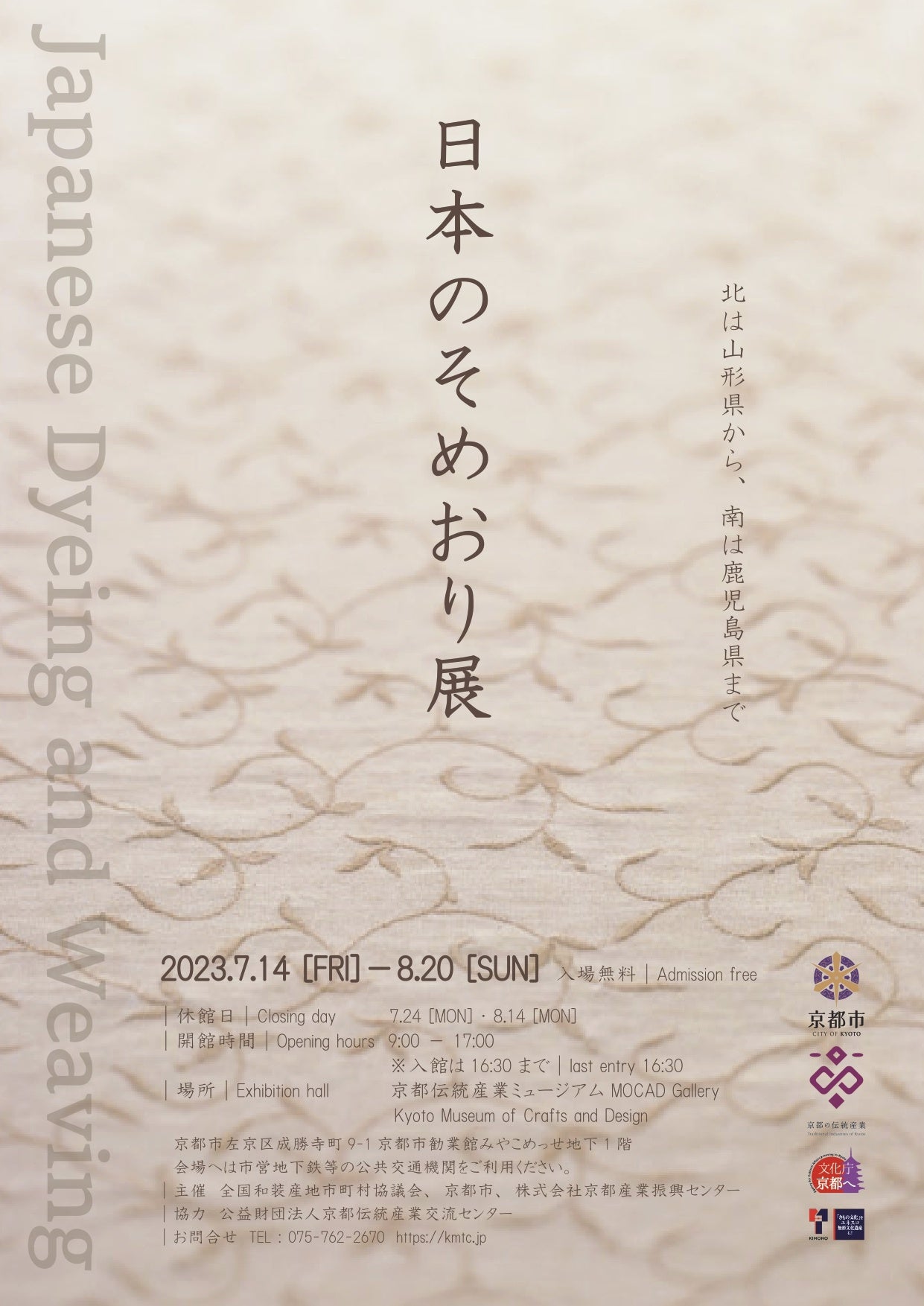
■Outline of the event
Japan Someori Exhibition
Period|Friday, July 14, 2023 ~ Sunday, August 20, 2023, 9 a.m. ~ 5 p.m. (Admission until 4:30 p.m.)
*Closed|July 24 (Mon), August 14 (Mon)Venue|Kyoto Museum of Traditional Industries MOCAD Gallery
(〒606-8343 9-1 Okazaki Seishōji-cho, Sakyo-ku, Kyoto City Kangyokan Miyako Messe B1F)Contents|Exhibition of kimono, obi, and other kimono products that are proud of each production area that is a member of the National Council of Kimono Production Areas Municipalities
In August, a “craftsman demonstration” was held.Admission|Free
Organizers|National Council of Municipalities of Japanese Clothing Production Areas, Kyoto City, Kyoto Industrial Promotion Center Co., Ltd. (Kyoto Museum of Traditional Industries)
Cooperation|Kyoto Traditional Industries Exchange Center
Webpage |https://kmtc.jp/event/2023/07/04/6622/
■ From Yamagata in the north to Kagoshima in the south, 19 kimonos and obi from traditional kimono production areas across the country in Japan will be in Kyoto
The National Council of Municipalities in the Municipality of the Cloth Production Areas, which consists of municipalities and councils with traditional kimono production areas nationwide, closely collaborates and cooperates with each other, and actively promotes initiatives such as developing new markets and training successors in each production area.
This exhibition is held every year as one of these activities. This year as well, 19 kimono and obi kimono products from each of the council member production areas gathered at the Kyoto Museum of Traditional Industries.
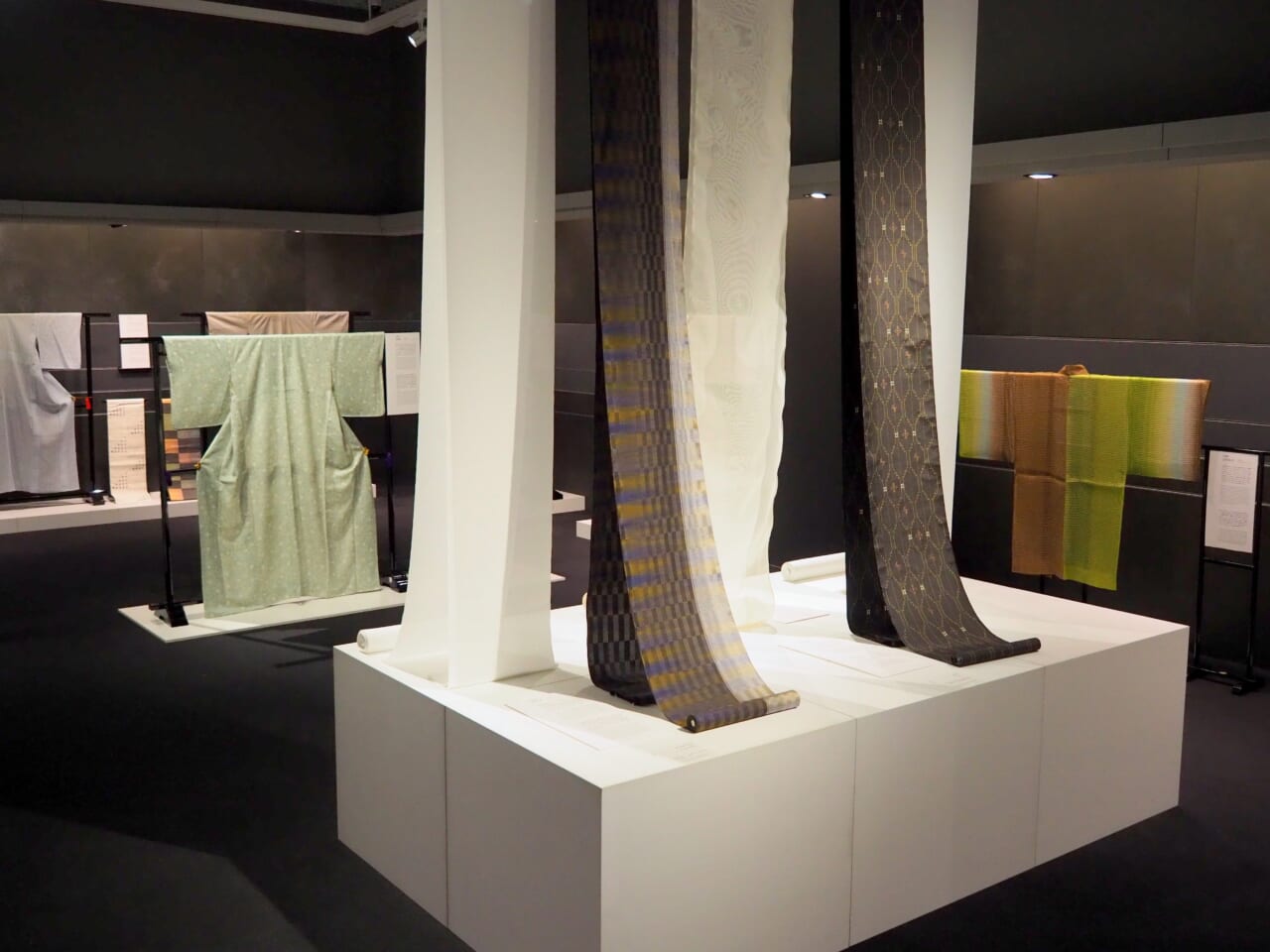
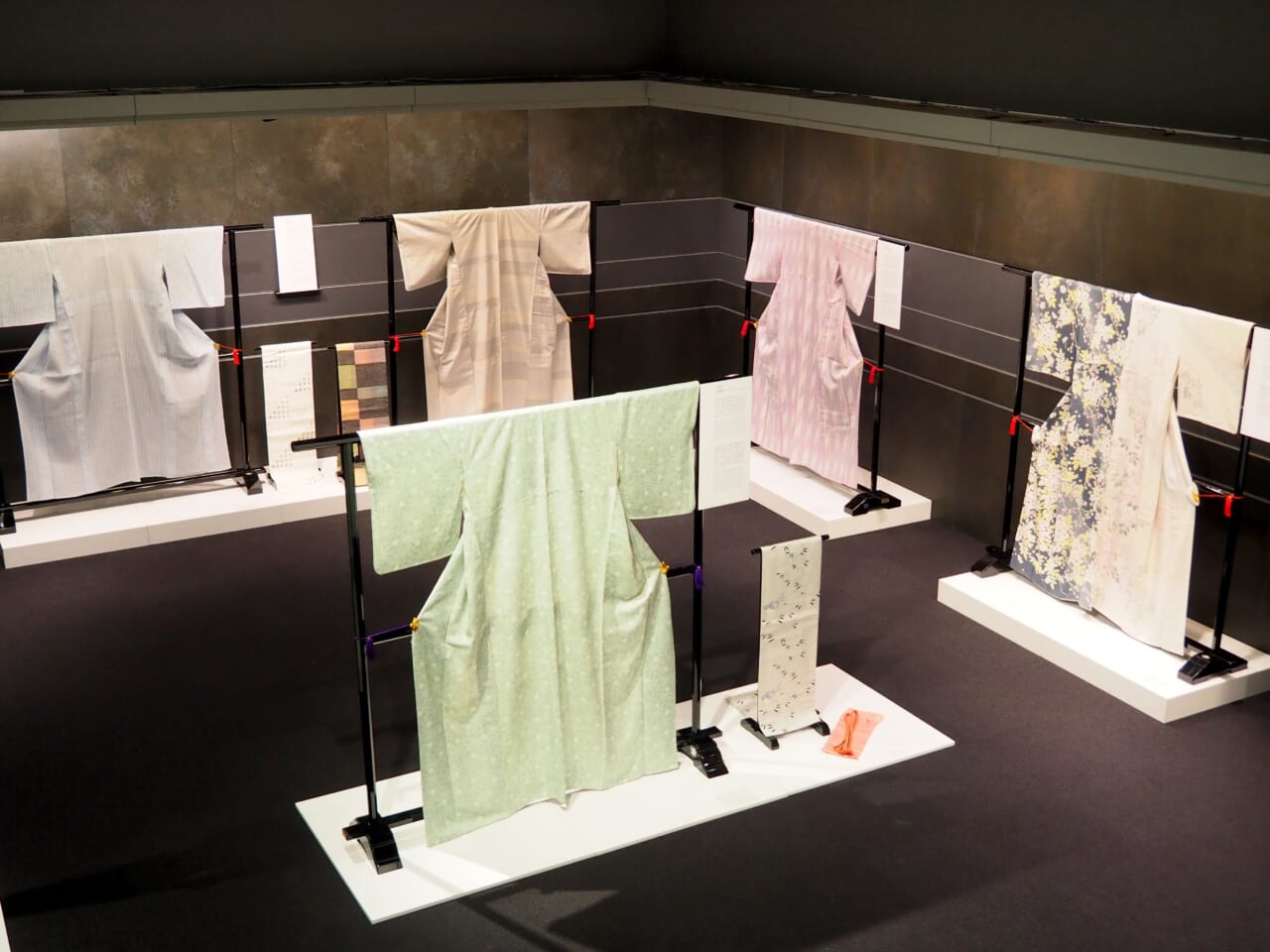
Each production area has nurtured its own unique technologies and colors against the backdrop of its own deep history, culture, and natural environment. In this exhibition, the characteristics of each of these production areas are carefully introduced and the charm of each is conveyed.
In addition, it is an exhibition where you can learn about the “now” of traditional industries, such as the number of artisans in each production area and the average age.
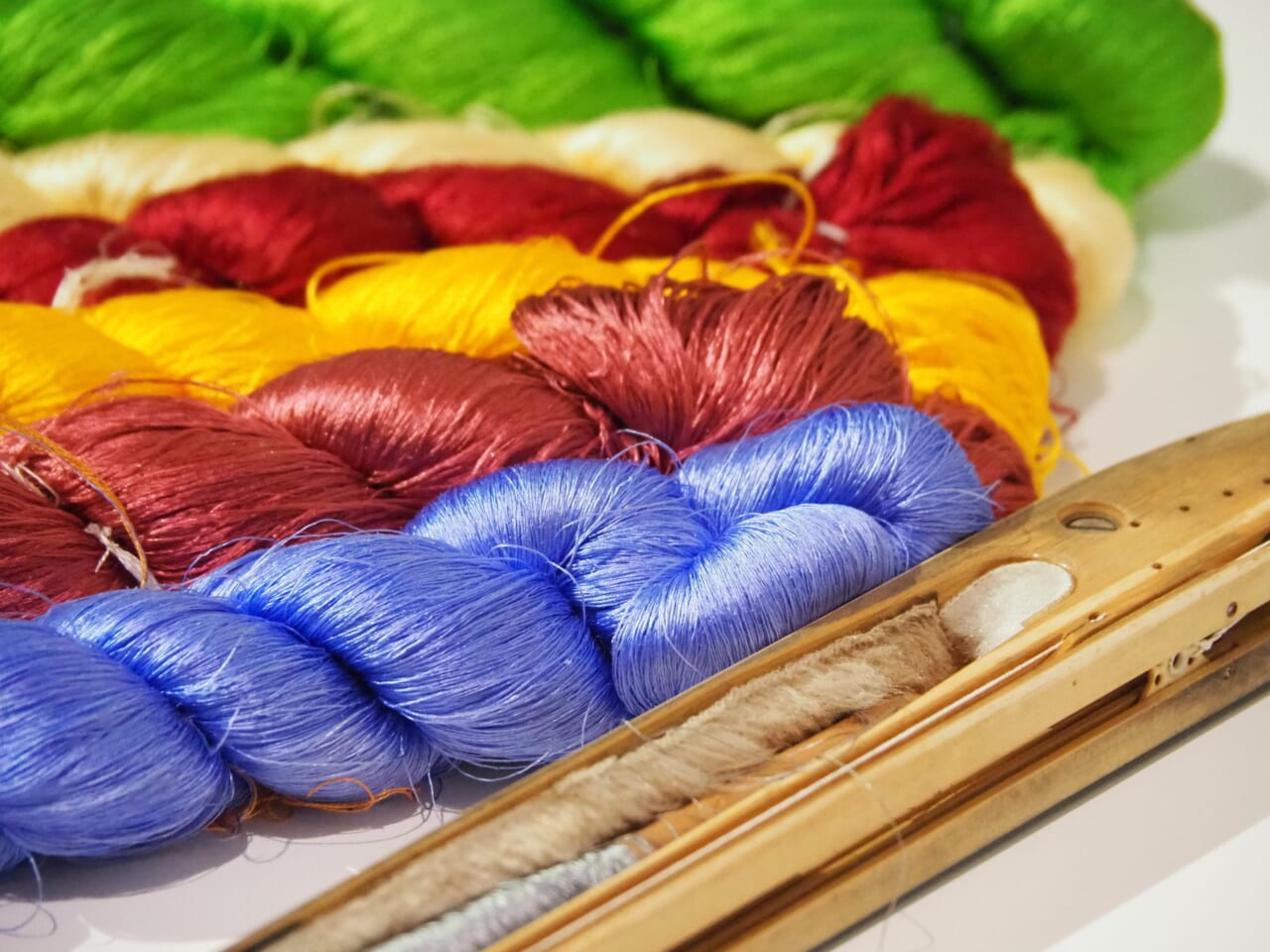
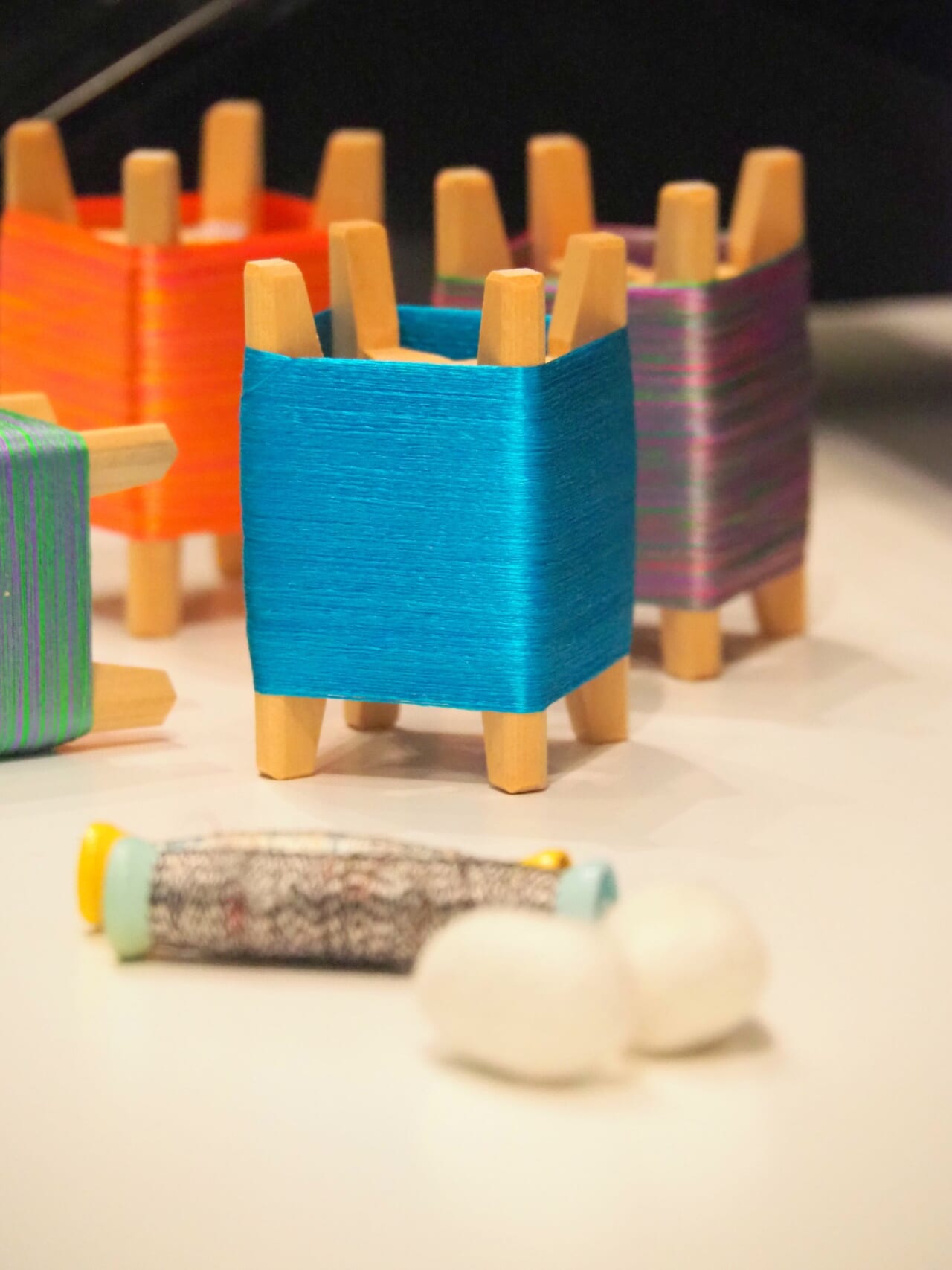
■ On Saturdays and Sundays in August, there is also a craftsman demonstration where you can experience some omeori
During the exhibition, on Saturdays and Sundays in August, demonstrations will be held where you can see the craftsmanship up close. No pre-registration is required, so please feel free to visit us.
August 5 (Sat) Nishijin Ori
Aug. 6 (Sun) Nishijin Ori
Aug. 12 (Sat) Kyo-Yuzen
Aug. 13 (Sun) Kyo-Yuzen
Aug. 19 (Sat) Kyo-Yuzen
Aug. 20 (Sun) Nishijin Ori
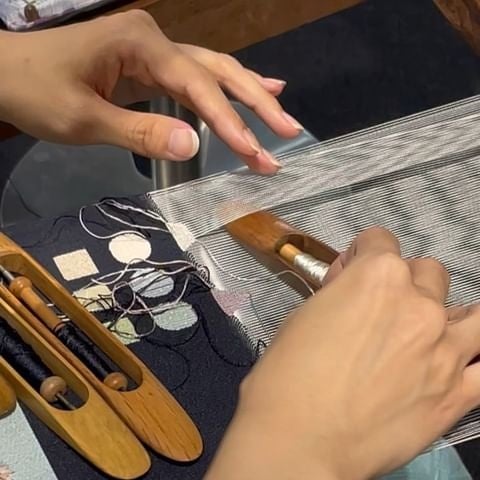
■What is the National Council of Municipalities in the Production Area of Japanese Clothing?
It is composed of the councils and administrations of municipalities with traditional kimono production areas nationwide, and aims to contribute to the promotion of the kimono industry by cooperating with each other.
Established|October 1974
Composition|13 cities and 2 towns (as of June 2023)
Member cities and major local products
Yonezawa Ori, Yamagata
Yuki City, Ibaraki Prefecture
Joso City, Ibaraki Prefecture Ishige Yuki Tsumugi
Kiryu City, Gunma
Isesaki, Gunma
Ojiya City, Niigata Prefecture Ojiya Shrink, Ojiya Tsumugi
Tokamachi City, Niigata Prefecture Tokamachi furisode, Tokamachi Akashi Chijimi, Tokamachi Kasuri
Gosen City, Niigata Prefecture Hadu, Komaga, Komashose
Kanazawa, Ishikawa Kaga Yuzen
Kyoto City, Kyoto Prefecture Nishijin weaving, Kyo-Yuzen, Kyo Komon, Kyoka no Koshiki
Kyotango City, Kyoto Tango Chirimen
Kyoto Yosano Town Tango Chirimen
Kagoshima City, Kagoshima Prefecture Authentic Oshima Tsumugi
Amami City, Kagoshima Prefecture Authentic Amami Oshima Tsumugi
Tatsugo Town, Kagoshima Prefecture Authentic Amami Oshima Tsumugi
■ About Kyoto Museum of Traditional Industries
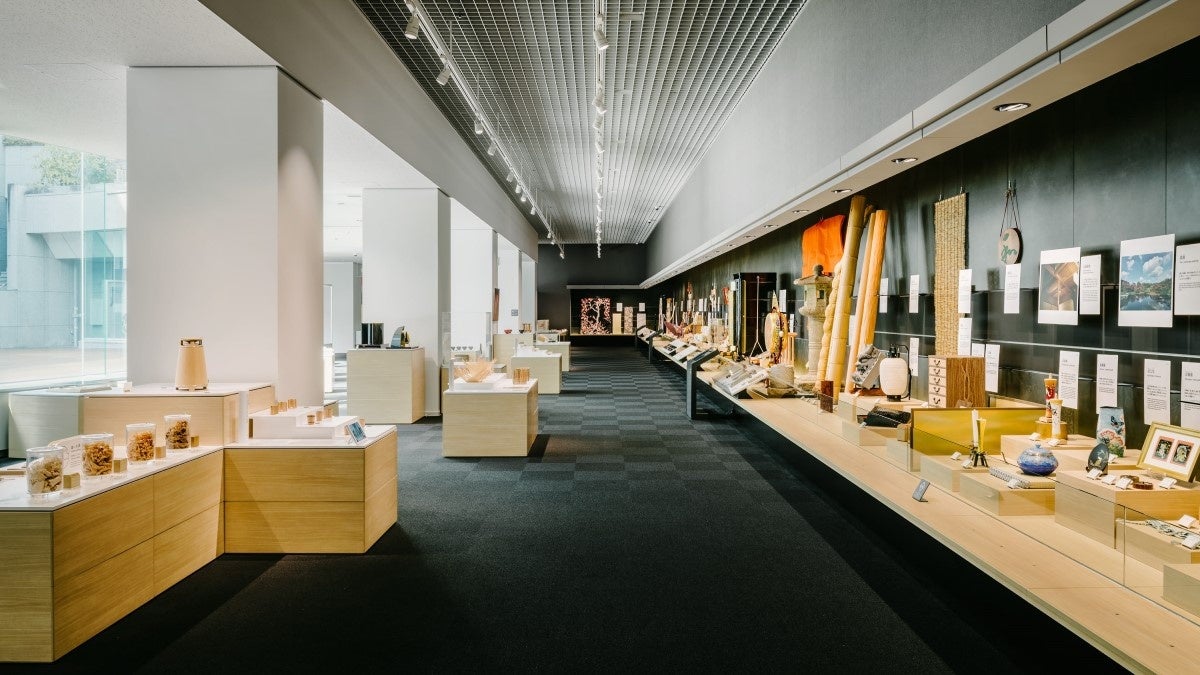
Since its opening in 1977, the Kyoto Museum of Traditional Industries has been working to promote traditional industries by introducing the industries that live in Kyoto and their backgrounds. After the renewal in 2020, we have further enhanced the business to introduce the activities of modern creators, and are creating a place for free exchange where both creators and users can look at the present of traditional industries and envision the future.
The museum shop (physical store) and online shop ( https://mocad-shop.com/) offer a wide variety of items that make use of Kyoto’s technology that can be proud of both in Japan and overseas, from traditional crafts that preserve and convey culture, to tools that are close to daily life, miscellaneous goods and accessories. Each product you purchase here supports the traditional techniques created by the thoughts and skills of craftsmen.



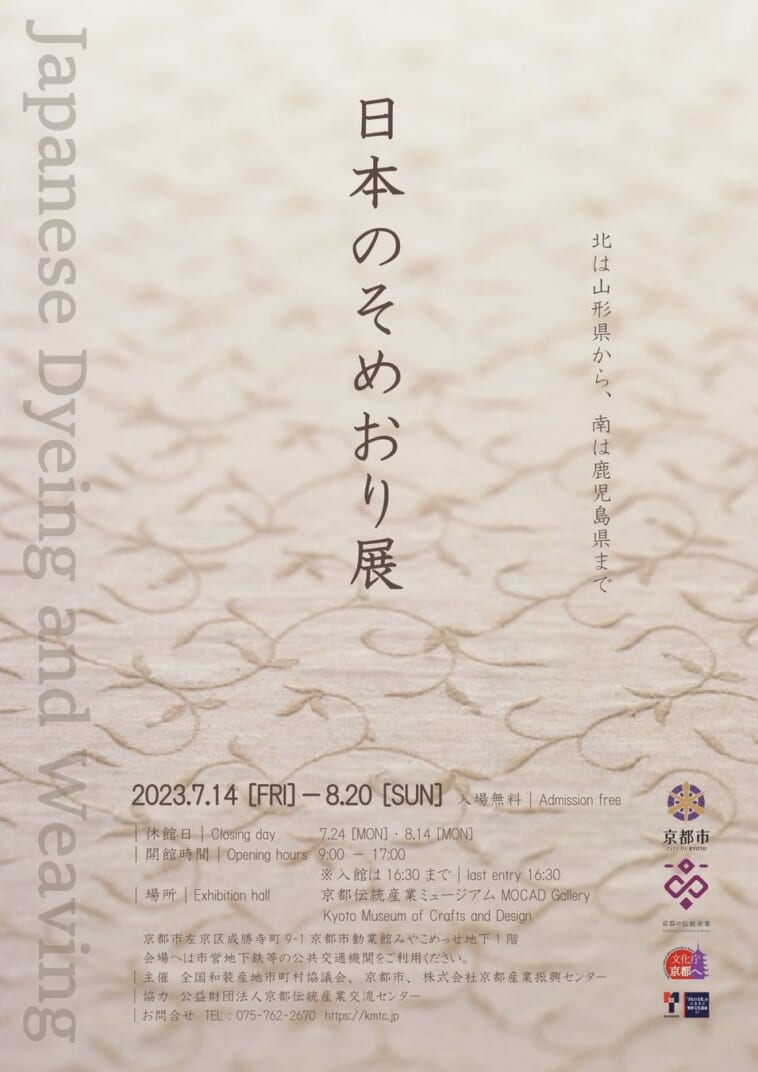






GIPHY App Key not set. Please check settings